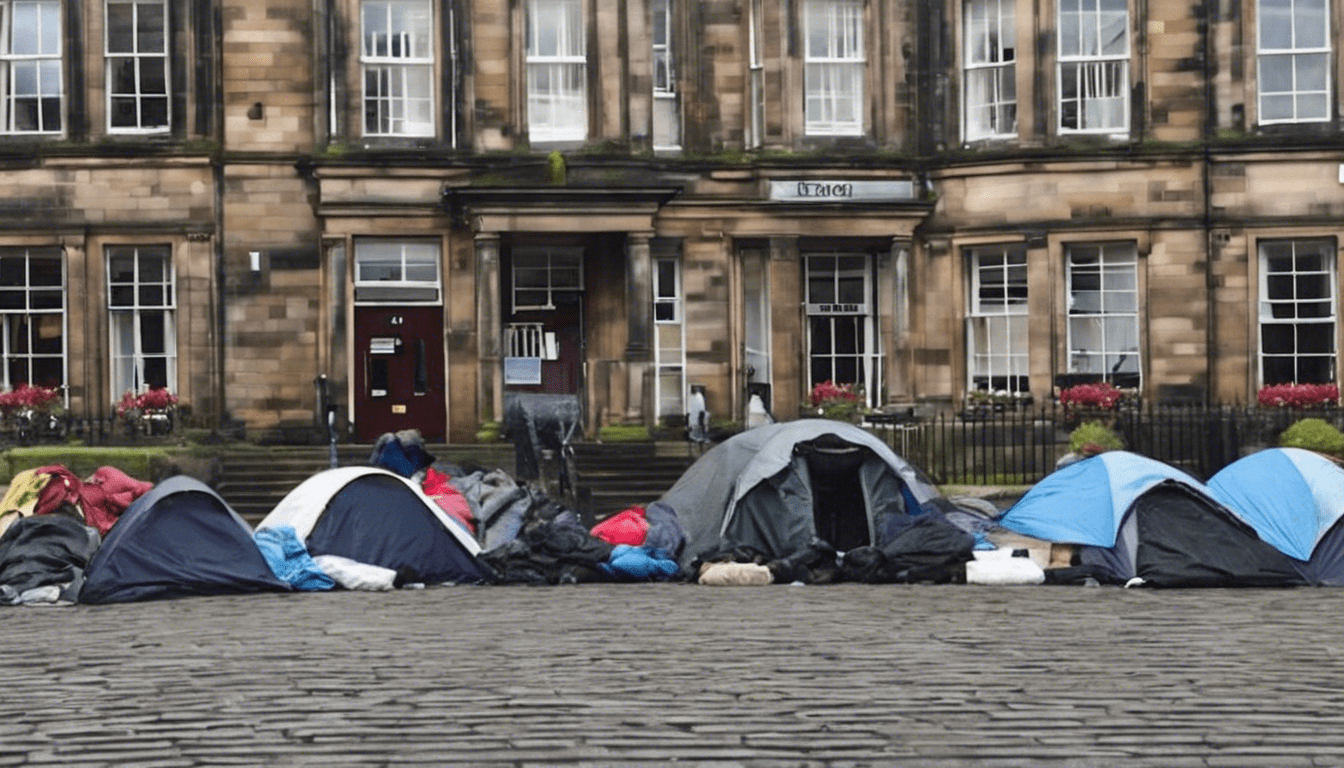The City of Edinburgh Council has announced significant reforms in its approach to accommodation for the homeless, declaring a firm commitment to end the use of unlicensed hotels and bed and breakfasts (B&Bs) by the end of December. This decision comes as a response to legal concerns regarding the safety and regulatory compliance of the accommodations where over 700 households currently reside. These properties have not fulfilled the necessary licensing requirements for Houses in Multiple Occupancy (HMO), which are crucial for ensuring the safety and well-being of residents. The council’s emergency housing committee aims to prioritize the relocation of these individuals into compliant housing options as part of a broader initiative to enhance conditions for vulnerable populations.
Key Takeaways
- Edinburgh Council is phasing out the use of unlicensed hotels for homeless accommodation to ensure compliance with health and safety regulations.
- The move affects over 700 households currently living in properties that do not meet licensing standards.
- The council prioritizes relocating homeless individuals to suitable and licensed housing as temporary accommodation numbers rise significantly.
The Rationale Behind the Council’s Decision
The City of Edinburgh Council is taking decisive action to address the pressing issue of unlicensed temporary accommodation for the homeless amidst growing concerns over safety and compliance. The council’s recent decision aims to phase out the use of 28 unlicensed hotels and bed and breakfasts (B&Bs) that currently house over 700 households, violating the required licensing regulations set for Houses in Multiple Occupancy (HMO). This initiative comes as legal advisements warned that the council may be infringing on regulatory standards by providing funding to properties that do not comply with essential health and safety requirements (Edinburgh Evening News, 2023). By pausing new applications for social housing and non-urgent repairs, the council intends to allocate resources towards relocating individuals residing in these non-compliant accommodations into safer and legally accredited housing options. The urgency of the situation is highlighted by the dramatic rise in the number of households in temporary accommodation, which has increased from 3,570 in 2020 to over 5,000 this year, following a temporary surge during the early stages of the Covid-19 pandemic when rapid accommodations were necessary (BBC News, 2023). By December, the council aims to have all residents in unlicensed settings transitioned to compliant properties, ensuring adherence to health regulations and improving overall living conditions (The Scotsman, 2023).
An HMO is specifically defined as a residential property containing three or more individuals from separate households who share communal facilities such as kitchens and bathrooms, which further reinforces the need for strict licensing to maintain safety standards (Scottish Government, 2023).
This decisive response by the City of Edinburgh Council underscores a commitment to providing safe housing solutions for the most vulnerable inhabitants of the city while ensuring compliance with legal frameworks designed to protect residents.
Impact on Homeless Individuals and Community Housing
The implications of this plan extend beyond just the regulatory framework; they directly address the health and wellbeing of vulnerable populations. Recently exposed conditions in unlicensed accommodations have raised significant concerns, prompting community advocacy groups to call for enhanced oversight and greater support for individuals experiencing homelessness (Crisis, 2023). As Edinburgh aims to eradicate the reliance on these establishments, the initiative presents an opportunity to reassess the overall strategy employed for housing the homeless community. City officials are also encouraging a collaborative approach with local charities and organisations, seeking to foster innovative solutions and create pathways that transcend mere temporary fixes. The objective is to secure long-term housing stability for those affected, which is crucial given the rising statistics that indicate an increased demand for suitable housing solutions amid the ongoing housing crisis (Shelter Scotland, 2023). By prioritising the relocation of residents to compliant properties, the council is not just ensuring legal adherence but also promoting dignified living conditions essential for the recovery and reintegration of these individuals into society.
Follow us for more info.






